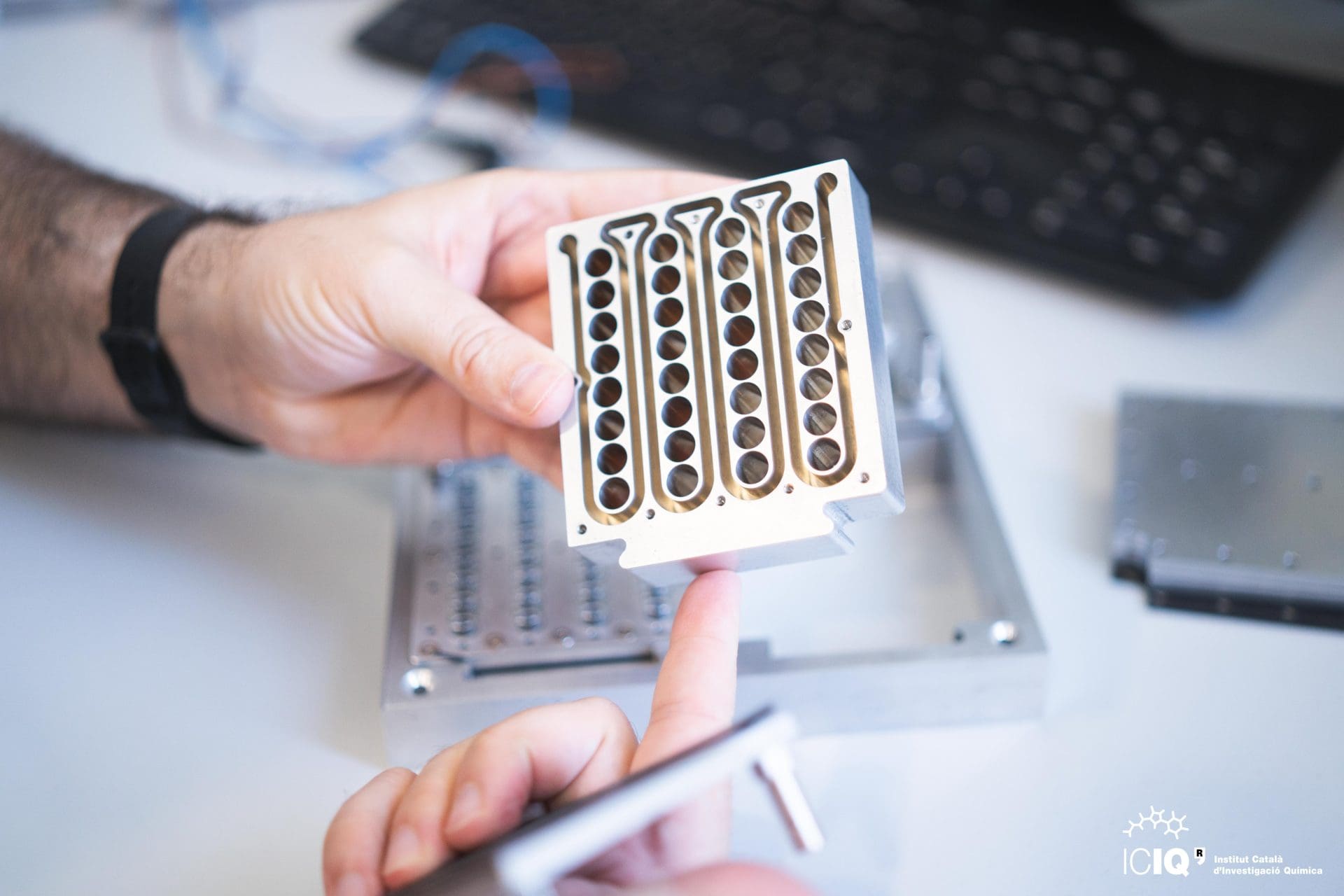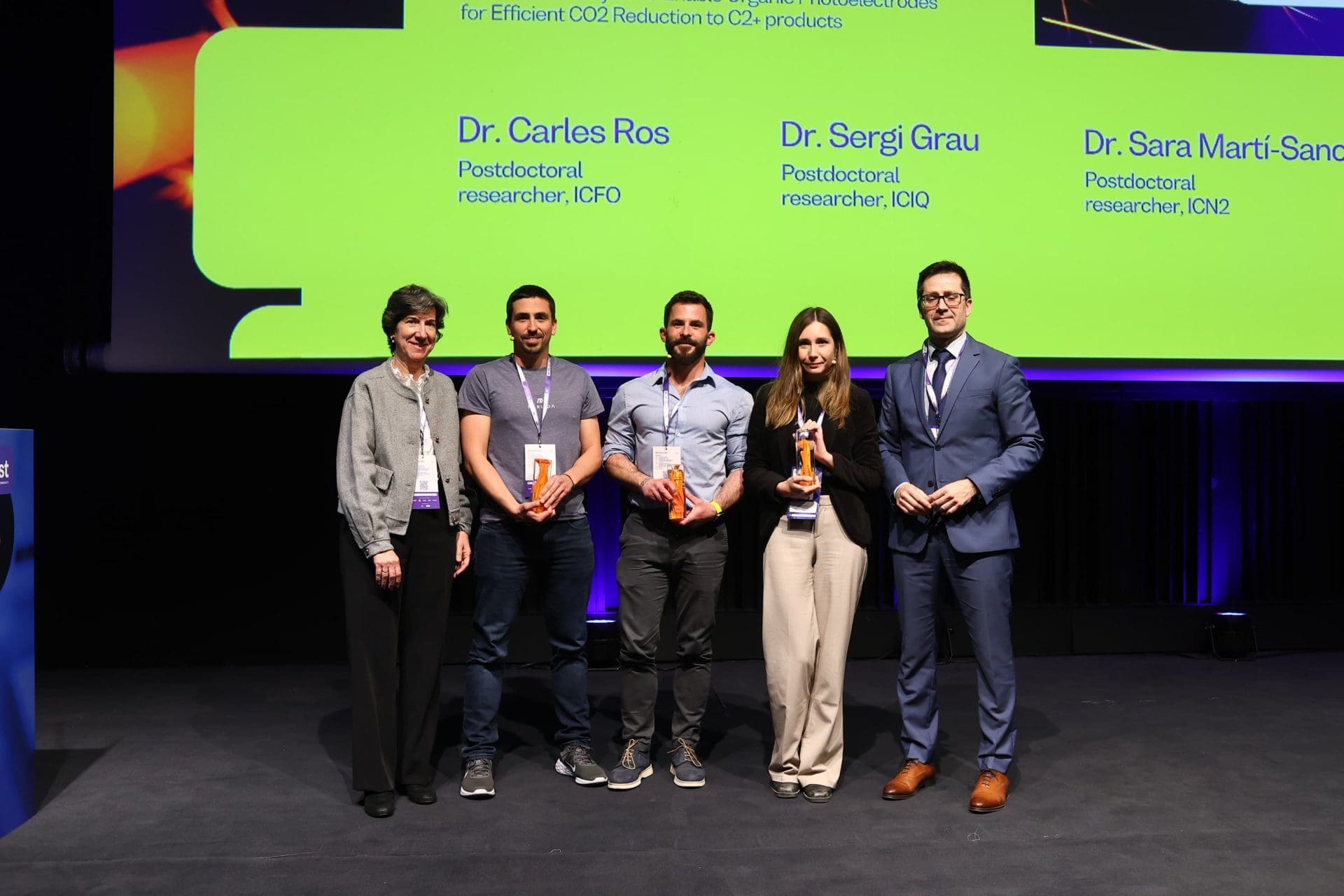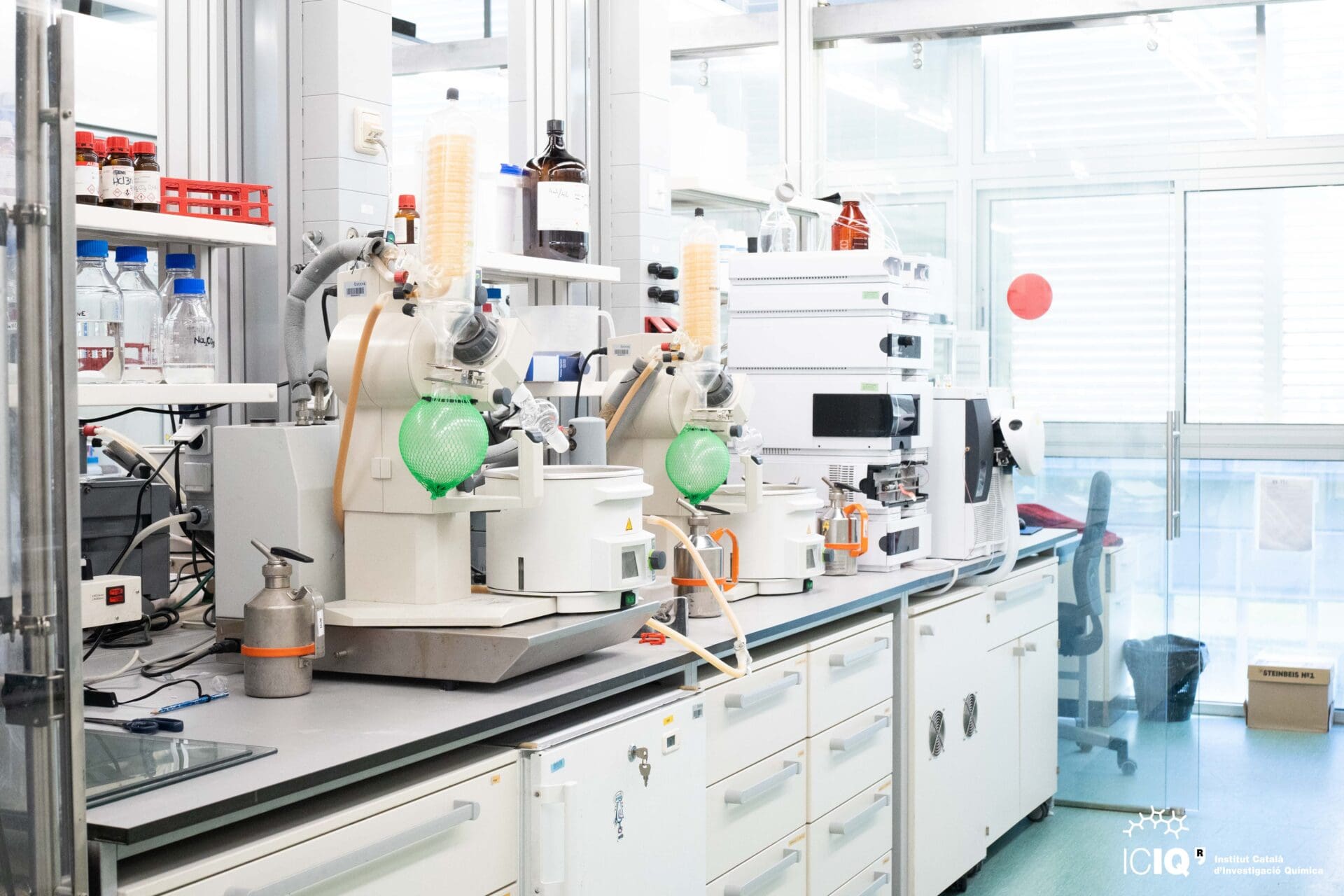New Projects Awarded: ELECTRA-4-FUEL & COCAP
7th December 2022 – ICIQ has been granted European Union – NextGeneration funds for two new R+D+i Projects.
These grants are intended to promote the culture of transfer and the entrepreneurial and innovative spirit of research groups, as well as contribute to strengthening the strategies for transferring knowledge and results of the beneficiary institutions of said projects.
The projects selected in this year’s call are leaded by: Prof. Julio Lloret and Prof. JR Galán-Mascarós:
ELECTRA-4-Fuel (Prof. Julio Lloret’s Group)
Fabrication of Highly Efficient Electrodes for the Production of CO under Industrial Relevant Conditions in Electrolyzers
Summary:
ELECTRA-4-Fuel comprises the validation of new technology for the fabrication of catalytic electrodes, the solution-combustion method, in CO2 electroreduction to carbon monoxide (CO). CO obtained from CO2 electrolysis, when using renewable energy, is an excellent product to advance in the decarbonization of our society, providing access to platform chemicals. Nevertheless, CO2 to CO electrolysis technologies still suffer from low current densities and high overpotential. It cannot yet beat economically the CO obtained from Producer gas, a mixture mainly containing carbon monoxide and nitrogen, formed by the combustion of carbon in the air at high temperatures.
Moreover, this process is associated with undesired CO2 emissions. Our patented solution-combustion method allows the growth of catalytically active materials on top of metal such as carbon-based gas diffusion layers, metal foams, and felts, forming stable and active catalysts that can operate at pH 10-13. Our method is fast and straightforward, versatile, more catalytic efficient and cost-effective. We have proved that our method can be directly growth outperforming CO2-to-CO and OER catalytic materials (and a broad scope of metal nanoparticles, highly entropic nanostructures of metal oxides, sulfides and phosphides) on top of current collectors (carbon-GDLs) in less than 100 seconds, form simple precursors, at low-temperature ignition.
ELECTRA-4-Fuel will advance the technology to the market by validating the solution-combustion method to generate electrodes operative under industrially relevant conditions. The project plans to scale the preparation of the state-of-the-art CO2-to-CO catalysts and electrodes from a small flow cell electrolyzers (4 cm2) to a membrane electrode assembly of 25 cm2. IP protection and market studies are already showing the relevance of the technology. More importantly, the solution-combustion method is universal to produce a wide variety of catalytic materials and, therefore, applicable to many different electrochemical processes with a potential transversal impact
Technology impact:
Electro-4-Fuel will produce impact in the way that functionalized electrodes are produced. Our patented solution-combustion synthetic method (not yet explored for the fabrication CO2 reduction electrodes) is a fast, versatile, simple, more efficient, and cost-effective electrocatalysts manufacturing methodology with promising applications in electrolysers CO generation. In particular, the direct catalyst growth over current collectors avoids the need for binders, improving the electrical conductivity (less ohmic losses) and mass transfer at the electrode, resulting in an overall improvement of the electrocatalytic efficiency. The simplicity vs. conventional methods and the exclusion of a binder agent to fix the active material on the electrode support decrease the manufacturing costs. The straightforward preparation of the solution-combustion and the simplicity of the method together with the low-temperature ignition step in a conventional oven (or continuous oven) presents a clear prospect for scalable manufacturing.
Societal impacts:
We envision that the optimization of the solution-combustion fabrication process of catalytically active electrodes will initially raise the interest of both research groups and R&D units at companies implementing electrodes. We expect that advances in the solution combustion process described above may prompt academia and industry to adapt our electrode manufacturing process for other applications. The solution combustion process produces highly efficient electrodes and the produced electrocatalysts are amiable to study. In a broader context, cheap electricity from renewables and advanced functionalized electrodes with catalysts can facilitate the production of greener and sustainable chemicals – the so-called power-to-X.
We also expect that the electrolysis technologies will improve society’s perception of chemical science as a model for searching for solutions to solve climate change and related environmental global problems.
COCAP (Prof. JR Galán-Mascarós’s Group)
Low-pressure CO2 CAPture technology for the fermentation industry
Summary:
TAMOF-1, a high surface-area (BET > 1200 m2/g) metal-organic framework has shown a high selectivity towards CO2, with robust thermal, chemical and mechanical stability and cyclability. Breakthrough data confirms this material is able to separate CO2 from a variety of permanent gases, including N2 O2, H2, CO and CH4, while operating at low (ambient) pressure, and offering low-energy/low-cost options for regeneration. These features open the possibility to use TAMOF-1 as the basis for a novel technology for CO2 capture. Through COCAP we propose to move through the next steps to bring this technology further to market: 1) processing of TAMOF-1 as mechanically-stable pellets to operate with industrially relevant flow rates; 2) optimizing the performance of adsorption columns packed with TAMOF-1 pellets; 3) designing, building and testing a pilot plant to capture CO2 from a gas stream mimicking the emissions from the fermentation industry; 4) assessing the techno-economic viability of a full-scale technology; 5) identifying the most promising market opportunities based on the corresponding technoeconomic analysis. The unique low pressure, low-energy operation conditions offered by TAMOF-1 are expected to increase capture rates, while reducing energy consumption and costs by a significant margin when compared with current, competitive CC commercial technologies.
Technology impact:
COCAP long-term impacts follow the objectives of EU Destination 3 for a More efficient, clean, sustainable, secure and competitive energy supply through new solutions for smart grids and energy systems based on more performant renewable energy solutions through accelerating the development of Carbon Capture, Use and Storage (CCUS) as a CO2 emission mitigation option in electricity generation and industry applications, supporting the generation of green fuels (also including conversion of CO2 to products).
Societal impacts:
In the fight against climate change, carbon capture (CC) is a game-changer. Its ability to avoid carbon dioxide (CO2) emissions at their source, makes it an essential part of the solution, in the transition to zero-emissions. The Intergovernmental Panel on Climate Change (IPCC) has shown that CO2 emissions could be reduced by 90% if power plants were equipped with suitable CO2 separation and storage technologies. However, the lack of an efficient technology for CO2 separation from other gasses is slowing down the deployment of commercial capture platforms due to its considerable cost, accounting for over two thirds of the total capturing cost. Thus, the discovery of new materials with high separation ability is one of the biggest challenges in this field. COCAP will contribute to accelerate the development CCUS technologies as a CO2 emission mitigation option in industry applications and supporting the substitution of fossil fuels (natural gas) by green, sustainable fuels (biomethane).
_ _ _ _
R+D+i projects of “Proof of Concept” funded by MCIN/AEI/10.13039/501100011033 and by European Union “NextGeneration EU”/ PRTR
ELECTRA-4-Fuel > Ref. PDC2022-133451-I00
COCAP > Ref. PDC2022-133214-I00

Related news

Let's create a brighter future
Join our team to work with renowned researchers, tackle groundbreaking
projects and contribute to meaningful scientific advancements







 21-02-2025
21-02-2025 















